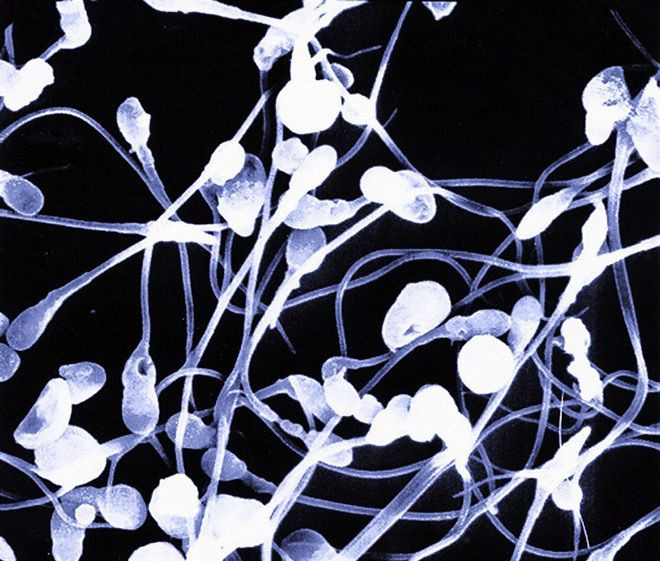Infertile Men Unable To Produce Sperm Face Increased Cancer Risk

With one-fourth of the genes in the human genome playing a role in reproduction, fertility is a rough measure of a person's genetic health. A new study published in Fertility and Sterility supports this notion, finding that infertile men are more likely to receive a cancer diagnosis than the general population.
Male infertility is a common problem in the U.S., with four million men diagnosed, 15 percent of which are ages 15 to 45. About 600,000 of these men are diagnosed with azoospermia, a type of infertility marked by the absence of sperm in ejaculate.
Led by Dr. Michael Eisenberg, director of male reproductive medicine and surgery at Stanford Hospital, researchers followed 2,238 infertile men, median age 35.7, who visited the Baylor andrology clinic in Houston from 1989 to 2009.
Of these men, 451 had azoospermia. About one-fourth of them suffered from non-obstructive azoospermia, a type in which sperm is not produced by the testes. The remainder had obstructive azoospermia, meaning their testes did produce healthy sperm but were blocked along the way of being ejaculated.
Researchers followed these men for an average of 6.7 years to see if they appeared in the Texas Cancer Registry. About 29 of the infertile men developed cancer at an average of 5.8 years later. If cancer rates were similar to the general population, researchers would expect to see only 16.7 cases, meaning that infertile men were 1.7 times more likely to develop cancer.
Further analysis showed that azoospermatic men had a substantially elevated risk, being almost three times as likely to be diagnosed with cancer compared to the general population. An azoospermatic man was found to have the cancer risk of that of a man 10 years older. Men who were azoospermic and had their sperm analyzed before age 30 were more than eight times more likely to develop cancer. Non-azoospermic men only had an increased risk 1.4 times greater, which was found to be statistically insignificant.
Previous research has linked male infertility with higher incidences of testicular cancer, but azoospermic men in the study were diagnosed variety of cancers, including brain, prostate, melanoma, and gastrointestinal tumors. The group of azoospermic men diagnosed with cancer was too small to establish a relationship between the condition and types of cancer.
The findings lead researchers to believe that both azoospermia and cancer vulnerability share the same genetic etiology. Therefore, Eisenberg suggests, men who are diagnosed with azoospermia should seek out a primary care doctor and see what cancer screenings would be appropriate for them.
Source: Eisenberg ML, Betts P, Herder D, Lamb DJ, Lipshultz LI. Increased risk of cancer among azoospermic men. Fertility and Sterility. 2013.



























